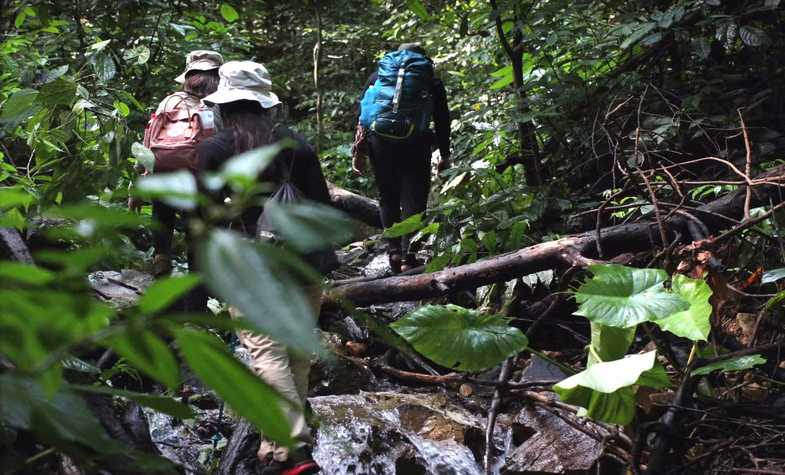How to Stay Healthy and Safe in Thailand: A Practical Guide for Travelers
Thailand is a beautiful and diverse country that offers many attractions and experiences for travelers. However, like any other destination, it also has some health and safety risks that you should be aware of and prepare for. Whether you are planning to visit the bustling cities, the serene countryside, or the tropical islands, you need to know how to protect yourself from diseases, accidents, and crimes. In this guide, we will give you some useful tips and advice on how to stay healthy and safe in Thailand.
To have the most benefit, see a health-care provider at least 4–6 weeks before your trip to allow time for your vaccines to take effect and to start taking medicine to prevent malaria if you need it. Even if you have less than 4 weeks before you leave, you should still see a health-care provider for needed vaccines, anti-malaria drugs, and other medications and information about how to protect yourself from illness and injury while traveling.
Pack medications in their original, clearly labeled containers. A signed and dated letter from your physician describing your medical conditions and medications, including generic names, is also a good idea. If carrying syringes or needles be sure to have a physician’s letter documenting their medical necessity. If you have a heart condition, bring a copy of your ECG taken just before traveling.
In most Southeast Asian countries you can buy many medications over the counter without a doctor’s prescription, but it can be difficult to find some of the newer drugs, particularly the latest antidepressant drugs, blood pressure medications, and contraceptive pills.
We recommend that you see a health-care provider who specializes in Travel Medicine. If you have a medical condition, you should also share your travel plans with any doctors you are currently seeing for other medical reasons.
If your travel plans cover multi countries, it is better to let your doctor or healthcare expert know as they will give you useful advice about necessary vaccines and updated information related to the destinations.

Vaccinations
The only vaccine required by international regulations is yellow fever. Proof of vaccination will only be required if you have visited a country in the yellow-fever zone within the six days prior to entering Thailand. If you are traveling to Thailand from Africa or South America you should check to see if you require proof of vaccination.
Specialized travel-medicine clinics are your best source of information; they stock all available vaccines and will be able to give specific recommendations for you and your trip. The doctors will take into account factors such as past vaccination history, the length of your trip, activities you may be undertaking, and underlying medical conditions, such as pregnancy.
Most vaccines don’t produce immunity until at least two weeks after they’re given, so visit a doctor four to eight weeks before departure.
Medical checklist
Recommended items for a personal medical kit:
• antibacterial cream, eg Muciprocin
• antibiotics for skin infections, eg Amoxicillin/Clavulanate or Cephalexin
• antibiotics for diarrhea, eg Norfloxacin or Ciprofloxacin; Azithromycin for bacterial diarrhea; and Tinidazole for giardiasis or amoebic dysentery
• antifungal cream, eg Clotrimazole
• antihistamines for allergies, eg Cetrizine for daytime and Promethazine for night
• anti-inflammatories, eg Ibuprofen
• antinausea medication, eg Prochlorperazine
• antiseptic for cuts and scrapes, eg Betadine
• antispasmodic for stomach cramps, eg Buscopa
• contraceptives
• decongestant for colds and flus, eg Pseudoephedrine
• DEET-based insect repellent
• diarrhea ‘stopper’, eg Loperamide
• first-aid items such as scissors, plasters (Band-Aids), bandages, gauze, thermometer (electronic, not mercury), sterile needles and syringes, safety pins, and tweezers
• indigestion medication, eg Quick Eze or Mylanta
• laxatives, eg Coloxyl
• migraine medication (your personal brand), if a migraine sufferer
• oral-rehydration solution for diarrhea, eg Gastrolyte
• paracetamol for pain
• steroid cream for allergic/itchy rashes, eg 1% to 2% hydrocortisone
• sunscreen and hat
• throat lozenges

Travel insurance
Travel Insurance is compulsory on all Travel Authentic Asia trips and is a condition of booking with Travel Authentic Asia. It not only helps you to get a stress-free mind while traveling but also covers the unlucky situation when things go wrong. Please ensure you have your policy number and emergency telephone number for your insurance company. If this important information is missing, please contact the insurance company to get them before leaving your home.
Traveling in Thailand is generally safe. Anyway, from our experiences, you should be aware that things might happen unexpectedly sometimes.
Before buying travel insurance, you should double-check your travel plan and all things that are related to the itinerary from the beginning till the end. Always make sure that your travel insurance covers all activities clearly mentioned in the itinerary and any other optional ones you may join in during the trip. The clearer and more thorough you learn about your plan as well as the destinations, the more efficient it is to study travel insurance ‘s policy.
Please, note that except you use luxury and high-level services, conditions in most Southeast Asia countries, in general, are not the same as in your hometown.
Your travel insurance policy should cover at least the following:
• Medical and health cover for injury or unexpected illness.
• 24-hour emergency service and immediate support.
• Personal liability in case you’re sued for causing injury or damaging property.
• Lost and stolen personal belongings.
• Trip cancellation and shortening.
• Personal accident.
You may require extra cover for adventure activities such as rock climbing, motorbike riding, water sports, etc. Note that the cost for emergency evacuation is very expensive and the bills of over 100,000 USD are not rare. You should find out in advance if your insurance plan will make payments directly to providers or if they reimburse you later.
In Thailand, except you visit the International health care center or other medical care cooperating with insurance companies (not always available), you need to pay in cash first and get the reimbursement later by sending them the related documents. Some policies mention that you need to call the center in your home country or report to the police for carrying out the appropriate investigation and get the necessary paper from them.
Travel Authentic Asia will provide you helps and advice in resolving matters on sport or dealing with local procedures relate to your case but nowhere liable for any legal matter relate to your claim or deal with the Insurance company.

Dengue fever
This mosquito-related disease is becoming more increased in most Southeast Asia countries, especially in big cities with crowds. Symptoms that can be easily seen are high fever, body pains, and headaches. Nowadays, there is not any specific vaccine against dengue fever so the only way that we can do is avoiding mosquito bites. If you, unfortunately, get dengue fever, you should visit a doctor, take a rest and use paracetamol.
Malaria
Malaria, a serious and fatal disease, has numerous misinformation that makes people wondering. Therefore, you should see your doctor or medical expert to get advice about the potentiality of malaria that you have to face if traveling to the planned destinations. Many crowded areas of Thailand have almost no risk of malaria while the countryside is at higher risk of contracting this dangerous disease. Most of us do not know that the side effects of the anti-malaria drugs may worse than the risk of getting the disease.
You need to discuss with your doctor if you need to use an antimalarial drug since it might cause side effects like tiredness, nausea, drowsiness, or stomach upset….
The best ways to avoid malaria is to use long-lasting insect repellent and wearing long pants and sleeves when traveling to places with mosquito available. Try to get the type of long-lasting insect repellent and use them more frequently around every 3 or 4 hours when you travel to the areas that have mosquitos.
When and where the risk of malaria is low, taking an antimalarial drug is not recommended.
Heat
The weather in most parts of Thailand is hot and humid all year round. Some people coming from different countries need to take at least a few days to adapt to the typical hot climate of the region. Take it easy when you first arrive. Don’t eat salt tablets but drinking rehydration solution or eating salty food helps. Treat cramps by stopping an activity or reducing the outdoor activity, relaxing, rehydrating, and gently stretching.
Effective treatments are getting out of the heat and sunshine, especially from mid-noon till 2.00 PM; applying cool wet cloths to the skin; drinking rehydrating water.
Before departure, you should check the packing list carefully. Actually, the medical facility in Thailand is rather good. Nowadays, most big cities in Thailand have medical care centers and clinics catering specifically to tourists and expats. The services’ fees here are more expensive than local hospitals or healthcare centers but are worth using. They can also support you in dealing with insurance companies in almost all cases.
Self-treatment can be applied if your problem is minor and not serious at all. If you think the situation is getting worse, you should visit the nearest good-quality medical centers to get the necessary attention.
At the group meeting held on the first day of your trip, you should inform your tour leader about your health conditions and any other special requests on using medication and allergies as well.
Maybe you like our Thailand tour:
***
Travel Authentic Asia Company is your best choice for discovering the beauty of Southeast Asia. Our experienced and knowledgeable travel advisors are committed to helping you create a tailor-made tour and extraordinary experiences in this majestic region.
If you're looking for an authentic cultural experience, do not hesitate to contact Travel Authentic Asia to choose a Thailand tour, Southeast Asia tour package or to customize your own style tour to South East Asia.

